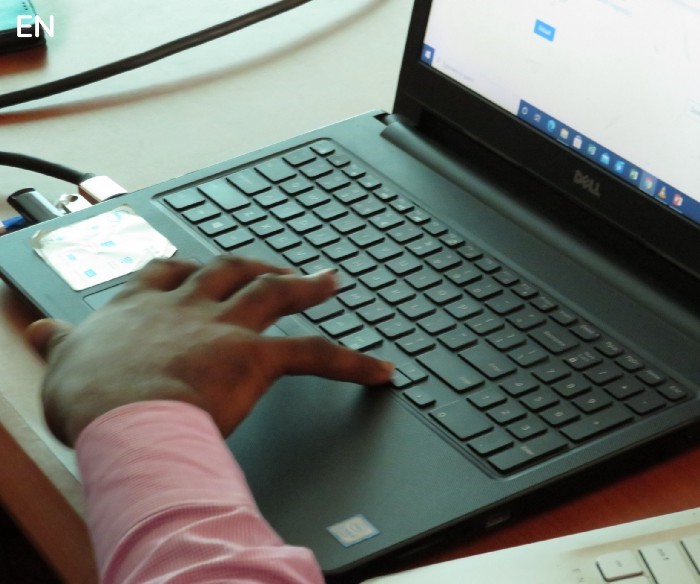Lean, smart, and ethical data collection
Good data is the backbone of effective and de-biased decision-making. This is as true in transforming cities as it is in the private sector or in national governments. In the ASToN network’s recent event on ‘data for decision-making’ we explored how good, trustworthy and low-cost data can be sourced, and how this can be done whilst respecting people’s rights and dignity. Here are 3 insights from this session:

African cities can repackage alternative data for new use cases.
Good decision-making requires good data. However, many cities in ASToN’s network report that good data is hard to come by, with existing data often being unreliable and difficult to access (for example through data being highly decentralized). For many problems, there is simply no available data to support decision-making, and limited budgets to collect it anew.
In this session, we discussed the potential for sourcing and using ‘alternative data’ instead of collecting new data. Repackaging non-traditional data sources for a new need can be an effective and low-cost way to support better decision-making. There are many opportunities for ASToN cities to do this. A prime example is the data collected by mobile network operators (MNOs), which provide rich and valuable information on movement, communications, and (if they host mobile money services) financial transactions. In Ghana, the national Government worked with a leading MNO and a specialist non-profit (Flowminder) to use MNO data to assess whether and when Covid-19 movement restrictions were effective, and the effect of relaxing restrictions [1]. Other studies have shown that MNO data can be used to accurately map poverty rates at a granular level [2], and predict mental health issues[3]. Partnerships with MNOs could allow cities to leverage this data to better understand and map traffic networks, understand the tax base, understand the effect of public policies, and much more.
This is only one type of alternative data, and the list of potential opportunities is long:
- Social media data provides a way to map changes in public sentiment over time.
- Databases created by grassroots organizations like the Humanitarian OpenStreetMap team provide detailed geographic information in otherwise poorly mapped areas.
- Satellite imagery provides the potential to categorize land use and changes at scale.
- Digital platforms like Jumia, Uber and many others are a new and growing source of data on business and individual behaviors, including in tightly defined markets that are specific to a country or city.
- Large technology platforms hold a wealth of data and predicted characteristics on their users.
This list is not exhaustive, and new opportunities arise every day. Strategic partnerships and interoperability infrastructure will allow cities to leverage these opportunities in the most appropriate way for them.
Data privacy and people’s dignity are legal and ethical requirements when sourcing data
Whilst alternative data can be effective, it also raises important questions on the rights and dignity of the data subjects. Spurred by the EU’s 2016 General Data Protection Regulation (GDPR), there has been a global move to regulate how data can be collected, used and shared. New data privacy and protection bills are proliferating in Africa, including Kenya’s 2019 Data Privacy Act and the 2019 Nigeria Data Protection Regulation. Typically, these require:
- Informed and repeated consent: Long, legal and impossible to read terms and conditions no longer suffice. Data subjects must know how their data will be used and why.
- Anonymity: Data subjects should only be identifiable where this is strictly necessary.
- Non-permanence: Data can’t be held forever. It needs to be deleted once its use is finished.
- Strict limits on data sharing: Data can still be shared, but there needs to be specific consent for this.
- Data portability: Data subjects are being given ownership of their data, and can request a copy of it when they want.
Beyond regulations, we discussed how people really feel about data privacy. Evidence from the Busara Center for Behavioral Economics has demonstrated that this is more than a regulatory issue: data subjects truly care about their data privacy. In one experiment, Busara showed that around 50% of people are willing to pay more for a loan which respects their data privacy, demonstrating the value that people place on this. This is indicative of a wider body of research, which shows that for a substantial proportion of people across contexts, how their data will be used is a key factor in how willing they are to give it up.
Put together, ethical data collection can supply cities with data for decision-making
In this session, we discussed how cities could pursue new sources of data while respecting data privacy, and the tension that lies between those two aims. Participants questioned how both were possible: how could they access alternative data whilst maintaining informed consent, and how in general should they think of connecting and utilising currently disparate data sources. This is by no means an easy task, but the answer lies in effective partnership building, building systems that automatically source informed consent by data subjects, and building interoperable networks that support the whole system.
Whilst this is difficult, this is worth it. Data privacy and data collection are not necessarily at odds with one another. In fact, respecting data privacy has the potential to make people happier and more willing to share their data, and more comfortable in navigating the digital world in general. Hence ethical data collection can lead to more, not less, data, and can drive effective data-led decision-making within and outside of the ASToN network.


